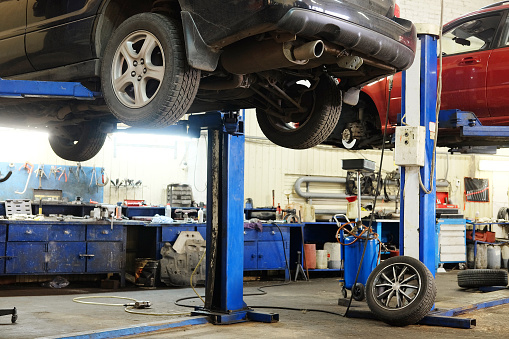All Categories
Featured

[/image]
Normal engine tune-ups are essential for maintaining your car's performance, improving gas effectiveness, and expanding its life expectancy. Whether you're a skilled vehicle owner or a beginner, recognizing the key elements of an engine tune-up can help you keep your automobile running smoothly for years. Here are some necessary suggestions to guide you with the procedure.
- Modification the Flicker Plugs. Stimulate plugs are small however magnificent elements that play an essential role in igniting the fuel-air mix in your engine. Over time, they can break or come to be fouled, causing inadequate engine performance, reduced gas efficiency, and tough beginnings.
During a tune-up, check your ignition system for wear and change them as necessary. For a lot of cars, ignition system need to be replaced every 30,000 to 100,000 miles, depending on the kind and material. Fresh stimulate plugs make certain efficient burning and smoother engine operation.
- Inspect and Change the Air Filter. The air filter is your engine's very first line of protection against dust, debris, and other impurities. A clogged up or dirty air filter can restrict airflow, creating your engine to function harder and take in more gas.
Inspect your air filter throughout a tune-up and replace it if it's dirty or past its recommended solution period. A tidy air filter boosts engine effectiveness and enhances gas economy.
- Inspect the Fuel System. In time, your gas system can accumulate dirt and carbon down payments, reducing engine performance and fuel efficiency. Cleaning the fuel injectors and fuel lines during a tune-up assists preserve correct fuel shipment and combustion.
You can use a gas system cleaner or have a specialist mechanic do a much more detailed cleaning. This step is specifically helpful for older vehicles or vehicles regularly driven in stop-and-go web traffic.
- Evaluate the Belts and Hose pipes. Belts and hoses are vital for different engine features, such as running the alternator, water pump, and cooling. During a tune-up, check for splits, fraying, or signs of endure these elements.
Change any kind of worn-out belts and tubes to prevent potential breakdowns. A broken belt or dripping hose can cause engine overheating or loss of power, so attending to these problems immediately is crucial.
- Change the Engine Oil and Oil Filter. Engine oil is important for lubricating moving parts, reducing rubbing, and managing engine temperature. With time, oil ends up being polluted and loses its efficiency.
As component of a tune-up, change the engine oil and oil filter. Use the sort of oil recommended by your automobile's producer and stay with the recommended modification periods. Clean oil maintains your engine running smoothly and avoids early wear.
- Test the Battery and Billing System. A healthy battery is essential for starting your car and powering its electric systems. Throughout a tune-up, check the battery's voltage and evaluate the terminals for rust. Clean the terminals if needed and ensure a secure connection.
Additionally, test the alternator and charging system to ensure your battery continues to be charged throughout procedure. If your battery is weak or old, take into consideration changing it to prevent unanticipated breakdowns.
- Flush and Replenish the Coolant. The cooling system regulates your engine's temperature, preventing it from overheating. Old or polluted coolant can shed its performance, leading to prospective engine damages.
During a tune-up, flush the old coolant and replace it with a fresh combination. Check the radiator, thermostat, and hoses for leaks or damage. Keeping the air conditioning system in great problem guarantees your engine operates at the best temperature.

- Address Caution Lights and Unusual Signs. Modern lorries are outfitted with diagnostic systems that inform you to possible issues through control panel warning lights. If your check engine light or any type of other advising signs get on, address them during your tune-up.
Additionally, take notice of unusual signs such as unusual noises, rough idling, or lowered gas performance. A professional technician can detect and fix these problems throughout the tune-up procedure.
- Do Not Neglect the Exhaust System. Your car's exhaust system removes harmful gases from the engine and makes sure correct exhausts. Inspect the exhaust system for leaks, rust, or damage throughout a tune-up. A faulty exhaust system can influence engine performance and result in environmental and safety and security issues.
- Use High-Quality Parts and Fluids. When replacing parts or rounding off liquids during a tune-up, constantly choose high-grade items that satisfy your lorry's specs. Utilizing poor parts or incorrect fluids can adversely influence your engine's performance and long life.
Conclusion: Normal Tune-Ups Are Trick to Engine Health And Wellness. Taking the time to tune up your engine guarantees it operates effectively, saves gas, and lowers the threat of malfunctions. Whether you do these tasks yourself or depend on a relied on auto mechanic, routine tune-ups are a financial investment in your lorry's reliability and durability. Adhere to these suggestions, and you'll enjoy a smoother, a lot more trustworthy trip for many years to find.
Latest Posts
Check Out the Greatest Auto Repair Deals in Montclare, Chicago
Recognizing When Your Car Needs Professional Car Repair at Montclare Auto Repair
Experience Your Financial Partner at WyHy – Top Benefits for Your Financial Goals
More
Latest Posts
Check Out the Greatest Auto Repair Deals in Montclare, Chicago
Recognizing When Your Car Needs Professional Car Repair at Montclare Auto Repair
Experience Your Financial Partner at WyHy – Top Benefits for Your Financial Goals